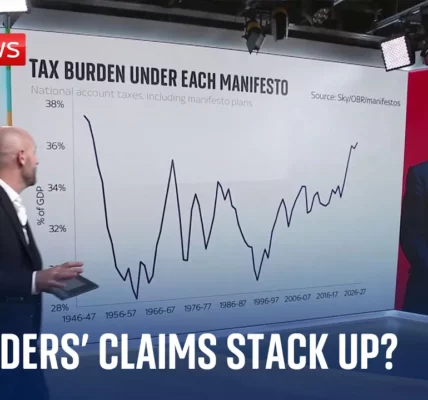Scotland’s Westminster Elections: A Mandate for Independence?

The upcoming Westminster elections hold significant implications for Scotland’s political future, particularly in terms of independence and local governance. This article delves into key issues, party positions, and the broader impact of the elections on Scotland’s economy and society.
Introduction
The Westminster elections are not merely a local event; they represent a pivotal moment in Scotland’s political journey. As political parties prepare for the election, discussions around independence, economic policies, and social welfare have taken center stage. The Scottish National Party (SNP) has positioned itself as the primary advocate for Scotland’s interests, with promises to prioritize local issues over broader UK politics. This article explores the intricate dynamics of the election and the potential outcomes for Scotland’s future.
Understanding the Mandate for Independence
The question of whether winning a majority of seats in Westminster equates to a mandate for another independence referendum is a topic of heated debate. The SNP argues that a significant win would provide a democratic basis for pursuing independence, while opponents question the implications of losing seats in the process.
The Concept of Winning
Winning in the context of Scottish politics involves more than just numbers. Here are some key points to consider:
- A majority of seats signifies a stronger voice for Scotland in Westminster.
- Political dynamics shift based on the number of seats gained or lost.
- Winning a majority can legitimize calls for a referendum on independence.
The Broader Context of the Election
This election transcends the singular issue of independence. It encompasses various critical topics affecting the people of Scotland, particularly regarding economic policies and social welfare.
Key Issues at Stake
During the election campaign, several key issues have emerged:
- Cost of Living Crisis: The rising cost of living is a pressing concern for many families in Scotland, and the SNP is advocating for policies aimed at alleviating this burden.
- Rejection of Austerity: The SNP positions itself against austerity measures proposed by other parties, advocating instead for investment in public services.
- Healthcare Protection: The NHS remains a top priority, with the SNP pledging to protect it from privatization and ensure adequate funding.
- Economic Growth: Economic policies aimed at sustainable growth and job creation are central to the SNP’s manifesto.
Party Positions and Critiques
As the election approaches, the SNP has criticized the positions of both the Labour Party and the Conservative Party. The following points highlight the differing visions for Scotland’s future:
The Conservative Party’s Approach
The SNP argues that the Conservative Party’s policies fail to address Scotland’s unique challenges:
- Lack of commitment to the single market.
- Failure to acknowledge the importance of migration for economic growth.
- Proposed cuts that threaten public services.
The Labour Party’s Position
Similarly, the SNP has raised concerns about the Labour Party’s policies:
- Inconsistencies regarding energy policies, particularly concerning oil and gas licenses.
- Failure to provide a clear plan for addressing the cost of living crisis.
- Limited focus on Scotland’s unique needs and priorities.
The Importance of Scottish Representation
With the potential for a hung parliament, the role of Scottish MPs in Westminster becomes even more critical. The SNP aims to ensure that Scotland’s voice is heard loud and clear, regardless of which party leads the UK government.
Voting Dynamics
The voting power of SNP MPs hinges on the party’s strategy:
- SNP MPs do not vote on issues that affect only England, which provides leverage in negotiations.
- The party’s goal is to influence policies that directly impact Scotland.
Conclusion
As Scotland heads to the polls, the stakes could not be higher. The upcoming Westminster elections represent a chance for the SNP to reaffirm its commitment to independence while addressing pressing local issues. The importance of having a strong Scottish presence in Westminster cannot be understated, and voters are urged to consider the implications of their choices carefully. If you want to learn more about Scotland’s political landscape and how it affects your community, explore our related articles for deeper insights.
“`




